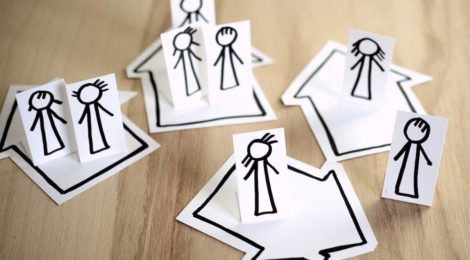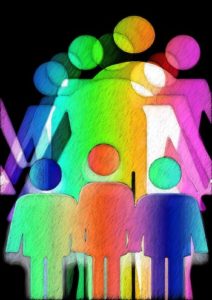
When Healing Requires Choosing Among Family
Healthy loving family is not guaranteed for everyone. In an interview with The Trauma and Mental Health Report (TMHR), Lida Salehi, a social worker and counsellor at Violence Against Women (VAW), shares:
“Most women are very distressed when they first call us and come here. They can be significantly influenced by the first person they see (who does their intake process), to whom they often stay very attached for a long time. When this is the first place they feel safe and access a sense of security, they say for years that this shelter is family. “
Shelters can provide some measure of safety, but restoring a sense of belonging and trust is a different story. Salehi explains:
“Trauma, especially of prolonged nature, kills two essential human experiences: a sense of belonging and trust. That’s what we need to work on in healing. Although some open up fast, for others, this sense of belonging may take a long time to be restored. We provide the space. It’s different case-by-case, as they open up according to their own timing.”
Many who leave abusive families soon find they’ve gone from the frying pan into the fire. Salehi goes on to explain the support that shelter provides for women in transition:
“The first thing that helps is nonjudgmental and active listening to restore the sense of belonging. Then we meet them where they are in life. They have 24/7 access to counsellors, one-on-one therapy, and other educational, financial and career-related resources. We always ask them what kind of support they need. We want them to keep their sense of control and agency.”

Salehi explains that many at the shelter have had boundaries broken many times, emotionally and physically. Working on boundary-setting skills is essential:
“Especially in the case of emotional and mental abuse, we educate them to distance themselves from shame and blame, and recognize the signs of abuse. Sometimes they return to the abuser, so we educate by showing them the probability of receiving violence from the partner or the family member again. We also create a safety plan.”
Those in the LGBTQ+ community face their own challenges, where many face the decision to either live a lie or keep family of origin. Shadi Gharaei is a holistic coach and creator of the Rainbow Family project, whose mission includes raising awareness and providing education on LGBTQ+ issues, specifically in middle-eastern families. Gharaei reflects on her own experience:
“Since early childhood, I didn’t want to stick to gender norms. My parents believed that such thoughts would trigger God’s rage. For the first 25 years of my life, I had two personas: an inner persona and an outer persona, where I had to pretend. I used to cry myself to sleep, praying that God would turn me into a boy. I had two suicide attempts in my teenage years.”
Now 40, Gharaei lives with their partner, and their family has come to accept them for who they are. While Gharaei was able to eventually find peace with family, such was not the case for Alireza, a 20-year-old gay man who was murdered by family members. Gharaei recounts similar instances of invalidation and rejection in the community:
“I know someone whose family made her choose between them and her fiancé. They stopped all communication for two years. I know many friends who had to escape Iran and move to Turkey. Some commit suicide or succumb to addiction.”

Joining a community can provide crucial support for LGBTQ+ members who face invalidation, rejection, and abuse from family of origin. Finding a queer community can feel like finding a second family. For Gharaei, this was one of the inspirations behind the Rainbow Family project:
“Family is where you feel safe, a community where you can be your true self and get support when you are at your lowest point. It’s where you have a sense of belonging: you can be yourself. No one is judging, humiliating, or making fun of you. Where you have that feeling that you are together through thick and thin: that’s what family is about.”
– Azin Dastpak, Contributing Writer
Image Credits:
Feature: congerdesign at Pixabay, Creative Commons
First: geralt at Pixabay, Creative Commons
Second: Wokandapix at Pixabay, Creative Commons




Outstanding, beautiful, grateful and hope